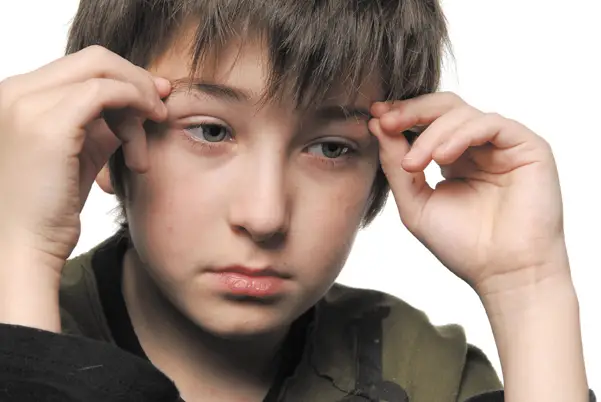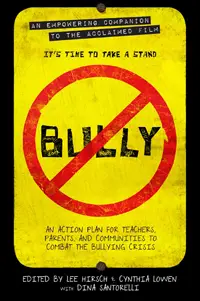How the movie “Bully” started a movement to end bullying, and why we as parents need to act on its message.
 Even before award-winning filmmaker Lee Hirsch’s Bully hit theaters last April, it had caused quite a stir. More than 20 members of Congress and celebrities including Ellen DeGeneres and Demi Lovato took to social media and the airwaves to try to convince the Motion Picture Association of America to change the documentary’s rating from “R” to “PG-13” after Katy Butler, a 17-year-old girl who had been severely bullied in middle school, took up the cause.
Even before award-winning filmmaker Lee Hirsch’s Bully hit theaters last April, it had caused quite a stir. More than 20 members of Congress and celebrities including Ellen DeGeneres and Demi Lovato took to social media and the airwaves to try to convince the Motion Picture Association of America to change the documentary’s rating from “R” to “PG-13” after Katy Butler, a 17-year-old girl who had been severely bullied in middle school, took up the cause.
Butler’s petition on Change.org garnered more than 500,000 digital signatures and ultimately won the battle: The MPAA lowered the rating—enabling the film to be screened in schools—and left in a vital scene in which a boy is verbally threatened in a graphic manner on a school bus. Search for nearby screenings of the film at thebullyproject.com. The DVD release is tentatively set for February.
Not Just a Special Needs Issue
Thirteen million children will be bullied in our nation this year, and they come from every walk of life, male and female. It is a fact, though, that children who have special needs are prime targets.
“For students with learning disabilities and other disabilities, bullying is a pandemic,” says James Wendorf, executive director of the National Center for Learning Disabilities. “It occurs every day, with 60 percent of students with special needs being bullied as compared with 25 percent of all students”—and, he notes, some studies put this percentage even higher.
One reason the numbers are likely higher: Most research is based on parent reporting, such as a recent survey conducted by the Interactive Autism Network (whose findings mirror the above statistics, with 63 percent of children on the autism spectrum having been bullied in the past year).
“Just like other children, children with ASD may not tell adults when they are bullied,” says Connie Anderson, Ph.D., community scientific liaison for IAN. In the case of those who are intellectually disabled and/or nonverbal, they may not be able to do so,” Dr. Anderson notes.
According to the IAN Bullying and School Experiences of Children with ASD Survey, typical behaviors that make children on the spectrum targets for bullying include clumsiness, poor hygiene, a stubborn adherence to rules, and misreading social cues (like going on and on about a topic the listener clearly shows no interest in—what Dr. Anderson refers to as “an almost classic autistic behavior”).
Long-Lasting Ramifications
While watching Bully, one of the prevalent feelings I had (beyond mere sadness at this unfortunate reality that our youth are faced with) was helplessness—and dismay at the reactions of many of the adults, particularly school administrators. “Boys will be boys,” said one Murray County, GA, school administrator—“they’re just cruel at this age.”
Even when there is action taken by authority figures, however, the effects of bullying are deep-rooted. “My mother intervened, of course…The physical attacks ended, but the isolation? The exclusion? That continues to this day,” wrote a Bronxville student named Anthony in the September issue of Teen Ink. His essay was chosen from nearly 1,200 submitted to the magazine for an essay contest conducted in partnership with Nicholas Kristof of The New York Times. (Visit teenink.com to read some of the devastating personal accounts of bullying that were submitted, as well as teenagers’ insights on how to address the problem.)
 Beyond the Screen
Beyond the Screen
Lee Hirsch, who was born and raised on Long Island and currently lives in Manhattan, has taken his film Bully beyond the closing credits with a companion book due out this October to coincide with National Bullying Prevention Month. Bully: An Action Plan for Teachers, Parents, and Communities to Combat the Bullying Crisis by Hirsch and Cynthia Lowen (Weinstein Books) provides concrete, actionable advice and a plethora of resources. It is a must-read for every parent and educator.
A panel of experts addresses problem-solving and conflict-resolution skills; coping strategies; what to do when bullying escalates; when to intervene if your child is depressed; encouraging a curriculum of social and emotional learning in schools; how to proceed with legal action; and so much more.
To read an excerpt from the book that provides real tips for parents of children with special needs, go to nymetroparents.com/bully.





















